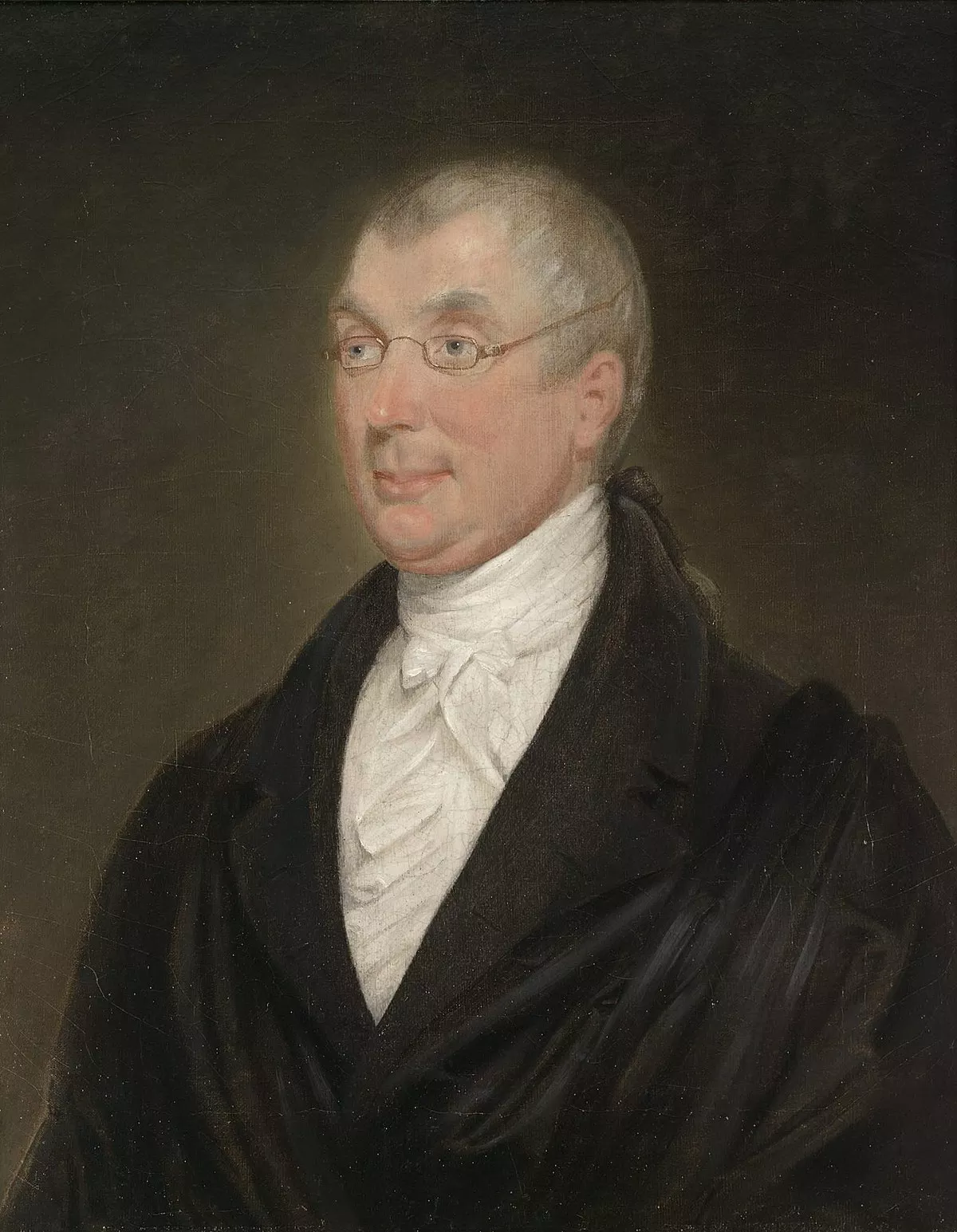 1.
1. Spencer Roane was a Virginia lawyer, politician and jurist.

 1.
1. Spencer Roane was a Virginia lawyer, politician and jurist.
Spencer Roane served in the Virginia House of Delegates for six years and a year in the Commonwealth's small executive branch.
Spencer Roane received his initial schooling at home, under a Scottish tutor named Bradfute.
Spencer Roane then entered the College of William and Mary aged 14, to study law under the tutelage of George Wythe, from whom he gained great appreciation of Edward Coke and the English system of property rights, as well as constitutional law, but disliked studying equity.
Spencer Roane became a member of the relatively new Phi Beta Kappa Society, then a literary and oratory association, along with future US Supreme Court justices Bushrod Washington and John Marshall.
One of Spencer Roane's first legislative proposals was a petition asking that charges against his constituents be dismissed because the peace treaty with Britain had been signed in the fall, months after the incident.
Spencer Roane was a Presbyterian, not a member of the formally established Episcopal Church, and religious freedom for Baptists and Presbyterians was a hot topic during legislative sessions of the new Commonwealth.
Spencer Roane had opposed both on religious establishment ground, although at the session's end Spencer Roane voted to allow incorporation of all societies of Christian religion.
Spencer Roane's only recorded dissent concerned an attempted removal of a justice of the peace for misconduct, which Roane thought interfered with the separation of powers.
In 1804, Spencer Roane persuaded his schoolteacher cousin Thomas Ritchie, to establish the Richmond Enquirer as an intellectual counterweight to the Richmond Recorder.
In 1794, Spencer Roane resigned from the General Court in order to accept the legislature's appointment as a judge of the Court of Appeals, where he succeeded his former examiner Henry Tazewell, who had become a United States Senator.
The thirty-two-year-old Spencer Roane then sold his Mahockney Plantation and moved to Richmond.
Spencer Roane sought the guidance of distinguished judge Edmund Pendleton, and on the latter's death in 1803, Spencer Roane became that high court's most influential judge, and remained on that bench until his death on September 4,1822.
Spencer Roane gained reputations for advocating States' Rights, as well as for opposing US Supreme Court Chief Justice John Marshall.
In 1815, Roane defied the US Supreme Court's decision in Martin v Hunter's Lessee, which he feared marked a drift toward abolition of slavery.
In 1819, Roane editorialized against Marshall and the US Supreme Court's decision in McCulloch v Maryland.
Spencer Roane believed that the federal courts could not entertain lawsuits against states without their consent under tenth and eleventh amendments to the US Constitution, and wrote several opinions foreshadowing the Nullification Crisis.
Twice in his lifetime, Judge Spencer Roane was appointed to committees to revise Virginia's laws, including the slave codes.
Some correspondence between Jefferson and Spencer Roane remains, although Spencer Roane reportedly destroyed many papers before his death.
Spencer Roane bought a 620-acre plantation of his own, Spring Garden, in Hanover County in 1802, added another 97 acres three years later, and in 1809 and 1810 acquired a neighboring plantation of 1029 acres known as New Castle or Neck Plantation, so by the census of that year owned 39 slaves and 15 horses and mules.
John Mottrom, first member of the Virginia House of Burgesses for Northumberland County, had a son John Mottrom, who in turn had a son named Spencer Roane Mottrom, named for Gov.
Spencer Mottrom's daughter Mary, in turn, was married to Joseph Ball, whose son Spencer Ball had a son Spencer Mottrom Ball, whose daughter Judith married William Roane and bore the future judge Spencer.
In 1787 Spencer Roane married Anne Henry, second daughter and fourth child of Patrick Henry, who bore four sons and three daughters before her death.
Spencer Roane represented Henrico County in the state legislature, the Richmond area as a US Representative, and Virginia as a United States Senator.
Spencer Roane remarried, to Elizabeth Hoskins, who survived him, but bore no children.
Spencer Roane became ill in March, 1822 and, realizing that his "indisposition" was not going away, wrote his last will and testament, as well as traveled to hot springs in Bath, Virginia, where he spent the summer trying to regain his health.